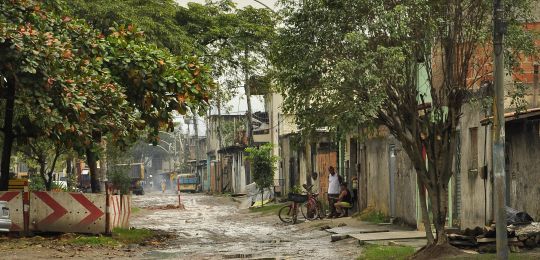
The 2030 Agenda promises Sustainable Development Goals (SDGs) that are “integrated and indivisible” and “leave no-one behind”. Yet goals listed have historically been pursued in ways that bring them into conflict with each other.
In a newly released paper in Environment & Urbanization, Daniel Schensul, Gayatri Singh and I argue that inclusive urbanisation is central to bringing these goals into alignment and preventing people from being ‘left behind’.
In most countries in Asia and Africa, populations are both growing and urbanising. Indeed, almost all of the world’s population growth is concentrated in these countries’ towns and cities. As in urbanising countries in the past, their governments are attracted by the economic advantages of cities, but worried by urbanisation and fearful of too many poor people crowding into the cities and towns.
Too often, the response is an urbanisation that excludes those most in need from key urban benefits. Cities and towns compete to attract as much investment as possible, but try to avoid attracting rural people who have poor economic prospects, even if they are even worse-off in rural areas.
In effect, economic goals are pursued in a manner that undermines unnecessarily the realisation of social goals.
Read the full post on the IIED website
Related content
International conference: Pathways to Sustainable Urbanisation in South Asia
Photo: Mariana Gil/EMBARQ Brasil, Creative Commons via Flickr